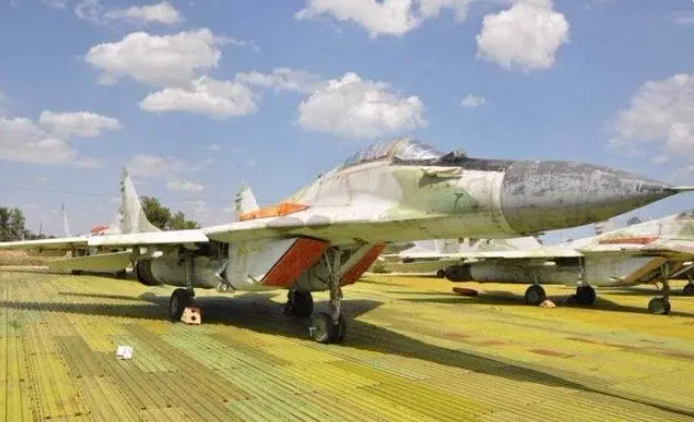By Tai Fengshun

Decommissioned Mikoyan MiG-29 fighters of Kazakhstan.
According to the US media reports, the US government recently purchased 81 obsolete fighters from Kazakhstan and planned to supply them to the Ukrainian military for use. The aircraft models involve Mikoyan MiG-29 fighters, Mikoyan MiG-27 attackers and Sukhoi Su-24 fighter bombers, costing USD 1.5 million in total. The average cost per aircraft is less than USD 19,000, equivalent to the price of a new energy vehicle.
On April 29, Kazakhstan said that the aircraft were all unserviceable and economically unfeasible to be modernized. It has been over two years since the outbreak of the Russia-Ukraine conflict, yet the Ukrainian Air Force is still deploying fighters for combat from time to time, thanks to the Western countries' persistent provision of Soviet-designed air force equipment to Ukraine through global collection and purchase, as well as the installation of Western-developed ammunition onto the weaponry.
Meanwhile, tt is reported that the US-made F-16 fighters may arrive in Ukraine this month at the earliest, and the Ukrainian pilots are currently being trained to fly the F-16 in Denmark and the US. However, based on the training standards of the US Air Force, a junior pilot needs at least nine months of practice in a formal flight training unit to complete all basic courses on F-16 flight operation. In view of this training period, it takes at least six months for even a skilled Mikoyan MiG-29 pilot in the Ukrainian Air Force to be able to pilot a F-16 fighter in operation.
Therefore, the only way to maintain the deployment frequency for the Ukrainian Air Force is to acquire as many familiar Soviet-designed fighters as possible through foreign assistance during this transition period. The outdated military aircraft from Kazakhstan could serve as fittings for the Ukrainian Air Force. Through the process of maintenance and the addition of engines and UAV equipment, these aircraft can even be put into the battlefields to divert the Russian Aerospace Forces, thereby intensifying the air defense pressure on Russia during their offensive operations and facilitating the ground operations of Ukraine.
The US' purchase of decommissioned fighters is also underpinned by some strategic factors.
First, from the military perspective, these aging aircraft are employed to guarantee the operations of the Ukrainian Air Force's Soviet-designed fighters, serving as a means of exhausting Russia's war resources, since it is a customary approach of the US to disrupt the competitors by relying on allies, as long as no US pilot is needed to be deployed.
Second, from the economic perspective, take the USD 60 billion Ukraine aid bill recently passed by the US as an example, despite being nominally designed for supporting Ukraine to resist Russia, the money will basically be carved up by the US military-industrial complex. The dismantling or retrofit on the obsolete Kazakhstan military aircraft also presents a lucrative opportunity for these groups. The 81 outdated fighters at a cost of USD 1.5 million will possibly be resold to Ukraine at a much higher price, after undergoing alterations and refurbishment.
Third, from the political perspective, Kazakhstan has maintained relatively friendly relations with Russia, but tended to favor the West in recent years. The US Secretary of State Antony Blinken once visited Kazakhstan and publicly expressed support for the country's independence and territorial integrity. Since then, Kazakhstan has closed its trade representative office in Russia. During the Russia-Ukraine conflict, although refraining from direct military assistance, Kazakhstan has consistently supplied medicines, food and other humanitarian aid to Ukraine, leading to external speculations around the Russia-Kazakhstan relationship. If the transaction of the retired aircraft is concluded, the outlook for the relationship between Russia and Kazakhstan will become increasingly unclear, potentially souring the bonds between the two former allies.
Editor's note: Originally published on thepaper.cn, this article is translated from Chinese into English and edited by the China Military Online. The information and opinions in this article do not necessarily reflect the views of eng.chinamil.com.cn.













